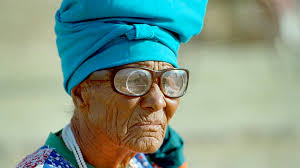A new study across four continents including Africa has inferred that social inequality and weak democratic institutions are factors that can cause faster ageing.
According to the study, Egypt and South Africa had the fastest ageing, whereas European countries showed the slowest ageing, with nations in Asia and Latin America being in the middle.
Although the study which was published in Nature Medicine on Monday also showed that ageing is accelerated by less-surprising factors such as high blood pressure and heart disease, as well as other environmental features such as high levels of air pollution, it finds Education as one of the top factors that protected against faster ageing.
The study, which was reported by Nature pointed out that the link to social and political influences could help to explain why rates of ageing vary from country to country.
The study included 161,981 participants from 40 countries, including 7 in Latin America, 27 in Europe, 4 in Asia and 2 in Africa.
According to the Nature report, the process of harmonising the data sets from the study, such as checking that variables were measured in similar ways in different countries took about 3 years, lead author of the study, Agustín Ibañez, who directs the Latin American Brain Health Institute in Santiago said.
The researchers examined previous research to identify possible factors that hasten or slow ageing that could be compared across countries. They fed data of these factors into a machine-learning model that predicts a person’s chronological age. That allowed them to calculate each person’s ‘biobehavioural age gap’ including the difference between their true chronological age and their age as predicted by the model.
For example, if you are 50 years old but the model predicts that you are 60 years old, you have a biobehavioural age gap of 10 years.
“Political polarization and uncertainty mean that “we are living in a world of despair”, and that ages people. We don’t think about the health impacts that this is going to have in the long run,” Ibañez was quoted as saying in the Nature report.
Meanwhile, the researchers listed the top medical risk factors for faster ageing to include high blood pressure, hearing impairment and heart disease. Other risk factors included unhealthy weight, alcohol consumption, sleep problems, diabetes and impaired vision.
According to the study, education, ability to perform activities of daily living and sound cognitive abilities are factors that provide the best protection against speedy ageing were. Other protective factors included physical activity, good memory and the ability to walk well.





